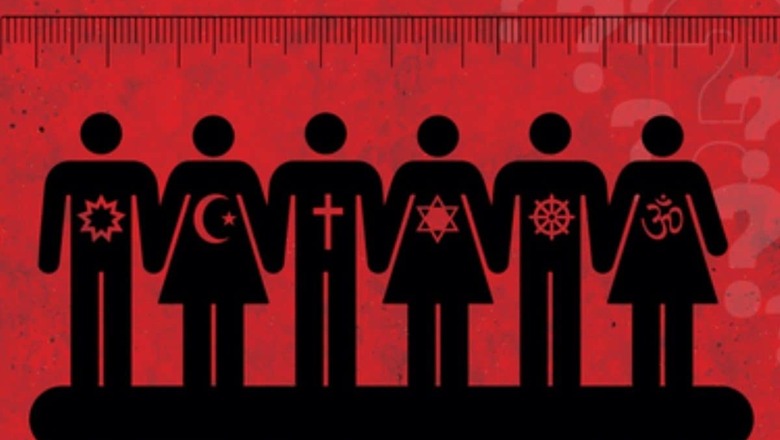
views
With Prime Minister Narendra Modi making a strong case for the uniform civil code (UCC) in a recent speech, and states like Uttarakhand readying to implement the code, the debate around the issue has received a new lease of life.
In an interview with News18, advocate J Sai Deepak details the sticking points around the UCC. Edited excerpts:
Q) Is the debate on the Uniform Civil Code progressing appropriately, considering its focus on Muslim personal law? Shouldn’t the enforcement of the UCC involve a comprehensive analysis of existing laws across all communities, taking into account women’s empowerment rather than simply outlawing practices like polygamy, considering that practices like triple talaq have already been declared unconstitutional by the Supreme Court?
A) Frankly speaking, in 2011-12, I had originally taken the position that we need the Uniform Civil Code. Over the years, thanks to more reading and gathering of opinions, my current position is that it is better to have a discussion on such issues in the backdrop of a specific proposal or document which outlines the object sought to be achieved.
I know that Mr. Kapil Sibal has said the same thing a few days ago but this has been my position for at least the last three years. In several of my public interactions where I have been asked my position on UCC, I have said, that as a lawyer, I would prefer to agree or disagree with something on the basis of a document instead of shooting arrows in the dark. Importantly, the absence of a document or a draft proposal makes it possible for every mischievous party to claim that this is one of the biggest exercises of minority persecution that the so-called Indian state has embarked upon. I don’t think that helps.
However, despite this considered agnosticism, if I am expected to take a broad position, it would be as follows: on such a sensitive topic, I am more concerned about what UCC would mean for Hindus given my conscious and informed position that the Indian state has typically taken Hindu interests, traditions and customs for granted, regardless of who is in power.
Now, if the idea is to address the stark reality of Muslim exceptionalism, which is reflected in the form of polygamous marriages and the like, that has animated Indian political discourse for at least 100 years, that does not require Hindus or non-Muslim minorities to give up their right to follow their customs and traditions. If the Indian state, after all these years of independence, still does not have the gumption to call out the problem of Muslim exceptionalism, why should Hindus and non-Muslim minorities agree to give up their customs and traditions only to address the issue of optics. Simply put, if issues such as polygamy and unequal treatment of genders in matters of succession afflicts one particular group, why is everybody else expected to join the bandwagon in the name of uniformity as if the very same issues are equally present in the rest of the communities?
Q) Implementation of UCC means that along with Muslims, other minorities like Christians and Parsis would also lose their existing right to apply to their own civil courts or laws for family matters. This includes marriage, divorce, and inheritance. Yet, the most vehement oppositions come from the Muslim Personal Law Board (MPLB)…
A) Perhaps because neither the Parsi nor the Jewish communities live in Bharat with a sense of “conquestorial” triumphalism, they don’t see perpetual minority persecution in everything that the Bharatiya state does. Also, there are two other important aspects – First, to approach personal laws as pure civil issues may not be correct since personal laws are rooted either in faith or faith-based custom.
This logic by and large applies to personal laws of every community. Consequently, it would be disingenuous to make the argument that personal laws are “secular matters”. This position equally applies to the institution of marriage and to matters of succession which is precisely why the position is different in each community.
Second, over the years, Muslim exceptionalism has been defended and legitimised in the name of “protection of minorities” which makes it very difficult to have an honest conversation, not withstanding the possibility of the presence of those voices from within the community which may be open to engagement and dialogue. This takes us to a slightly different but related angle. As long as Muslim exceptionalism is not addressed in a comprehensive and constructive manner, it is very difficult to expect this phenomenon to not rear its head in the context of personal laws which directly impinges on the implementation of the Shariat.
Unfortunately, it is my humble and honest opinion that no dispensation has made a departure from the policy of encouraging this exceptionalism. If anything, it appears to have only increased. What else can explain the continued existence of the Ministry of Minority Affairs which was created in 2006 under the previous dispensation and the continued increase in allocation of community-specific budgets? Clearly, there are a few steps that I think that the government must initiate to address these larger issues before it directly touches the hot potato of the UCC.
Q) Arif Mohammad Khan, who took a very strong stand against ‘discriminatory practices’ perpetuated by Muslim personal law while commenting on the UCC and functioning on the MPLB, wrote that the Imrana case, along with many other cases, including the famous Shah Bano case, are merely symptoms of a much deeper malice; the desire to maintain and perpetuate disparity between the sexes. MLPB, since its inception has been the votary of this trend. Do you think that MPLB will succeed in stifling any attempt to implement the UCC this time as well?
A) You have to realize that there are multiple factors involved here. One is to preserve what they believe or what is perhaps the true position of the Shariat. Second, it’s a non-Muslim state, especially a Hindu-majority state even if secular, which seeks to intervene in a subject occupied by the Shariat. Therefore, such intervention will not be acceptable to the Muslim personal law board. Had it been a Muslim or Islamic state, perhaps interference with Muslim personal laws would have been accepted.
So, there are two layers to it. One is to protect their religious beliefs and the second is to protect their religious beliefs against interference by a ‘Kafir’ state. And that I think is the most problematic, sensitive, and delicate aspect of the discussion that most people shy away from. Shri Arif Mohammad Khan is made in the mould of Shri Abdul Kalam. Such exceptions are, unfortunately, not the norm and therefore I am not sure if his voice and views will be heard by those who wish to preserve the status quo of exceptionalism. I hope we get more such voices, and I hope we actually have a very clear discussion on the root mentality which prevents the Bharatiya state from stepping into the picture.
Q) BJP had three big-ticket promises. Number one was 370, second was Ram Mandir and third was UCC. Do you think that the first two issues were relatively easy to implement and BJP government would find it very difficult to implement the UCC?
A) Frankly, the Ram Janmbhoomi Movement was a movement that preceded the founding of any political party or cultural organisation by at least a few centuries. Further, the issue was resolved through the judgement of the Supreme Court and was based on an earlier verdict of the Allahabad High Court. Therefore, the credit for the outcome belongs to all the stakeholders of the movement.
On the issue of Article 370, its amendment has changed certain perceptional barriers and has dismantled certain vested interests and lobbies within the valley. I don’t deny that. However, there are two important aspects: Has it translated to better circumstances for return of Kashmiri Pandits? I am not sure, given the spate of killings we have witnessed over the last two years. Two, while we keep focusing on Kashmir, Jammu and Ladakh are witnessing a demographic change. Clearly, amendment of Article 370 was not an end in itself.
Compared to the Ram Janmabhoomi issue and Article 370, the UCC is not going to be a walk in the park since it directly touches upon the issue of personal laws and the Shariat. Given the motivated and well-coordinated reactions to the yet to be implemented CAA, and the farm laws, greater preparation and clearer messaging would be called for on the subject of UCC.
Q) It has been said that UCC should be a piecemeal effort through judicial degrees on a case-by-case basis. What do you think should it be implemented in one go or in phases?
A) I don’t know if a judicial approach is the way to go about it, because the Supreme Court itself has framed certain questions in the context of the Sabarimala case on the power of the judiciary and the ability of the judiciary to enter the realm of faith. Those questions have been framed in the context of rights under Articles 25 and 26.
Such being the case, I wouldn’t want to open the door of judicial intervention given the limits of the application of secular rationality in the realm of faith. Further, relegating such an important issue which falls exclusively in the realm of the legislature to the judiciary, would reflect that the legislature or the executive does not have the confidence to undertake this initiative. I hope that the executive and the legislature have the civilisational confidence to have an open conversation at least now.
Q) Is the UCC really intended as claimed by BJP to improve women’s condition or is it being used as a ‘Brahmastra’ in the run-up to the 2024 elections?
A) I don’t know what kind of Brahmastra it is going to be because as Hindus we are more interested in safeguarding our lives, dignity and property from the kind of butchery that Hindus have been put through in Kashmir, Bengal and Manipur, than drawing some kind of shallow and vicarious satisfaction that UCC has been implemented. I would be much more interested in seeing what kind of concrete steps the government is undertaking to check illegal migration which is a greater threat. These are the issues I am interested in from a Hindu perspective than the UCC.
Q) Do you think that if the UCC is implemented, will it be able to pass the proportionality test, as it will be surely challenged on the grounds of violating fundamental rights?
A) Proportionality is always to be tested on the anvils of the object sought to be achieved and the measure that is proposed and how the measure is implemented. That requires a document. We have no document to discuss proportionality. Of course, a UCC, if and when it is enacted, will be challenged without a doubt. Everything that this government does will be challenged. That is their ‘Niyati'(fate). However, whether the government’s initiative will pass muster on constitutional anvils, is a question that needs to be answered specifically and without a specific document or provision, I certainly am not in a position to answer.
Q) As a society, do you think we are ready to accept UCC as we have diverse cultural practices and with so much plurality?
A) We are obviously not a single society. We are a nation with multiple societies within and if the two-nation theory has morphed into a different creature altogether after independence then you are looking at the two-nation society at the very least. So, I don’t think we are a single society as long as a part of the society believes that it lives in Darul Harb. Therefore, unanimous acceptance of the UCC appears to be a pipe dream.
Q) Do you think that UCC might give rise to another NRC/CAA-like movement?
A) I would say so.
Views expressed in the above piece are personal and solely that of the author. They do not necessarily reflect News18’s views.











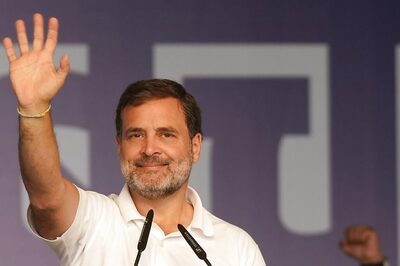
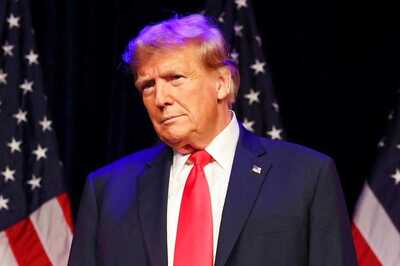




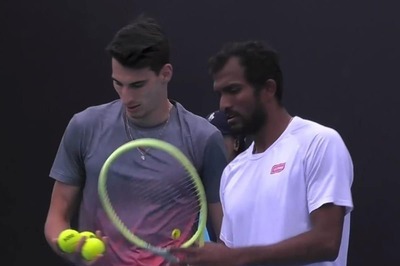
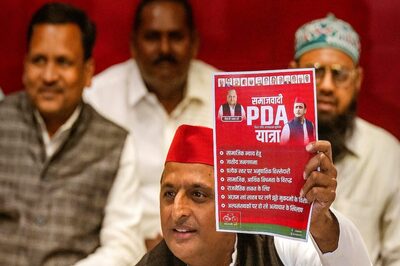

Comments
0 comment